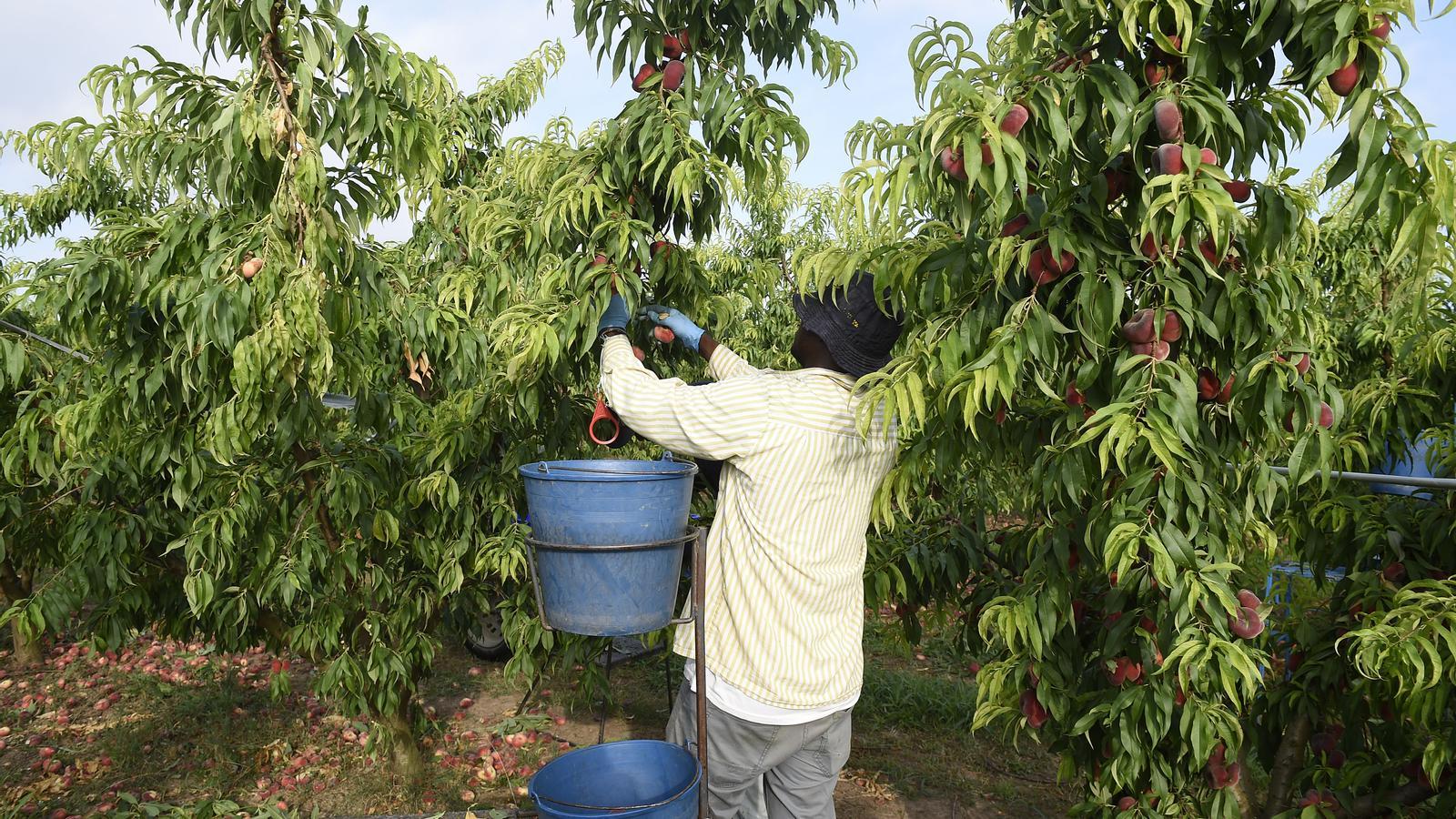

On the death in Alcarràs of a seasonal worker harvesting fruit There is, first of all, the personal tragedy of someone who, at 61 years old, was forced into extremely hard work and was denied permission to go home when he declared he felt ill. He was only allowed to rest in the shade of a tree. Gheorghe Vranciu died there, alone. The temperature in the Alcarràs area had exceeded 40 degrees. Legally, it is not mandatory to stop work in the fields in situations of extreme heat. It is only recommended. Therefore, there is no legal liability for the employer. Another thing is the moral burden he will now bear. In any case, Vranciu's son reports that the company "took more than two hours to call the ambulance." Beyond legality, job insecurity also has to do with this apparently careless, or even negligent, treatment.
Vranciu's death from heat stroke isn't the first this summer. But it should be the last. There have been two others in just a few months: one in Fraga—a worker abandoned and dying on a fruit farm in Baix Cinca—and one in Barcelona—in this case, a municipal cleaning service worker. Climate change is bringing more and more heat peaks, which are also more extreme and longer-lasting. Without a doubt, as the unions have demanded, it's time to adapt regulations and working conditions to this new and harsh climate reality. Laments, expressions of condolence, and crocodile tears aren't enough.
We must also all be aware of who performs these tough jobs: many of them are done by immigrants. The native population is unwilling, probably not even if they were paid better. Therefore, it must be made clear that Catalan society needs this workforce—anti-immigration rhetoric often ignores the evidence of economic reality—and, at the same time, it must be made clear that we must collectively demand that no one have to risk their lives. Beyond remuneration, rest breaks, fresh water supplies, sunscreen, etc., must be regulated.
In this case, the contract was signed through a temporary employment agency (ETT), the firm Empleo Express, according to which the worker had received the "necessary" training and information on occupational risk prevention, in coordination with the client company. The courts must now determine the details of the circumstances surrounding the death and determine what responsibilities are inferred.
The farmers have come out to defend their honor. It is true that this cannot be generalized. As Unió de Pagesos says, most farmers "do things right." It's therefore important for everyone to do things right, if necessary by tightening protocols or making the law more specific to address the heat; also by intensifying on-site inspections. Is the government prepared and willing to do so? Or should we mourn more tragedies? Of course, everything has economic consequences, both for public authorities and for individual farmers. But people's lives, and in this case, workers' lives, come first.
